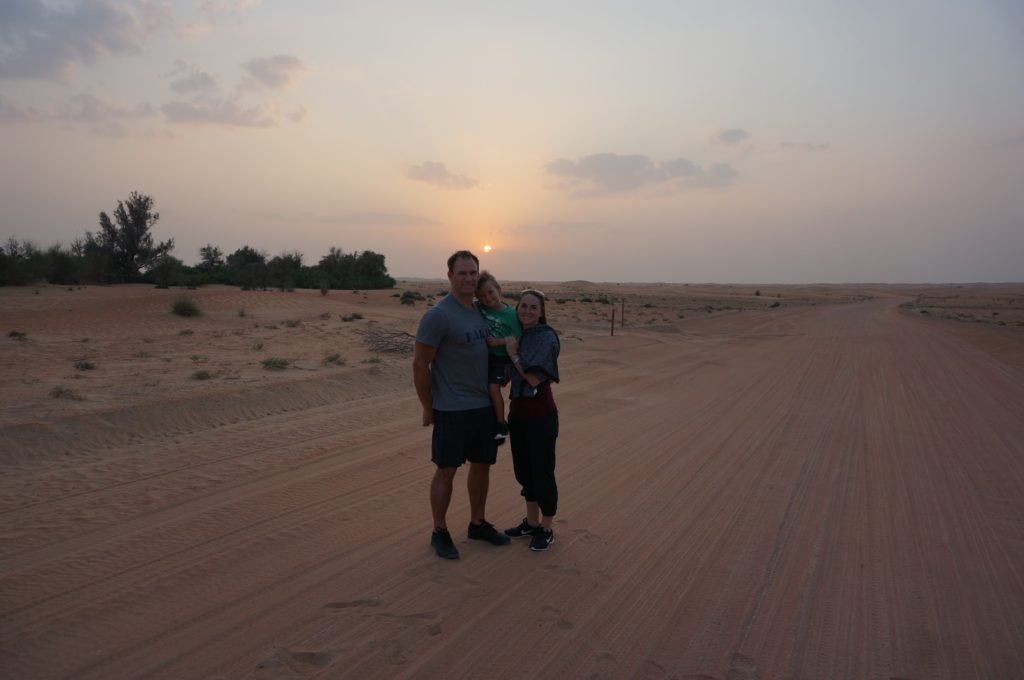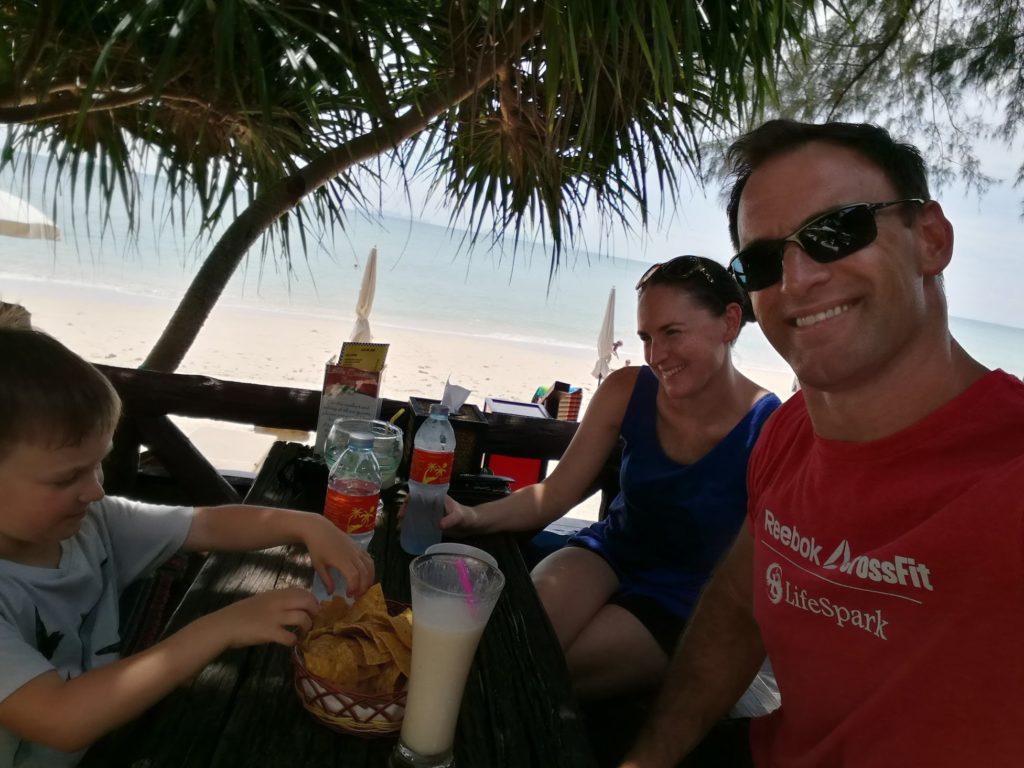I wasn’t in a very happy place in 2008.
The business my partners and I had been steadily building for five years was in trouble due to the financial crash. We were laying off staff and desperately trying to restructure in an effort to save the company.
I was also an actor at the time, working in an Off-Broadway production of Shakespeare’s Antony and Cleopatra. I had been working my way up through the New York theater ranks since finishing grad school in 2004, steadily landing more substantial gigs. The higher I climbed, however, the less I enjoyed the work. The greater the stakes grew, the less theater was about the art and the more it was about the business. People were friendly to one another in person, but didn’t have very nice things to say about each other behind their backs. I was naive and I should have anticipated it, but I didn’t.
Two of my family members were diagnosed with cancer that year. My entire family was reeling and we braced for the worst. My wife and I traveled from New York to Connecticut weekly for hospital visits.
My wife and I also decided in 2008 that we were ready to start a family. I was concerned, though, because I didn’t want to be an absentee father. I was already a sporadically-available husband and it was making me miserable. It was difficult to imagine having a child and only seeing him or her for an hour or so each night and on weekends.
Exhausted and demoralized, I realized that I was building the life I had dreamed of, but that I hadn’t thought about what it would actually be like to live it. I had poured all my time and energy into something that I discovered I didn’t actually want.
Check Out – The Snow Globe From Hell
One bright, warm day I was walking through Union Square on my way to lunch and I decided to take a different route than I normally did. The massive Barnes and Noble store on the uptown side of the square was quietly appealing that day, and I walked through the door.
Usually my trips to the bookstore were efficient and direct: locate book, grab book, buy book. On that day, though, feeling tired and defeated, I just drifted. I needed an escape and the cool, clean, orderly interior of Barnes and Noble’s was enough.
I found myself in the Self-Help section, which normally I would hustle by with a scoff. My eyes loitered over the clean, neat shelves, not really looking for anything in particular, when a white cover blazoned with a pair of golden palm trees caught my eye. I picked it up, opened to the table of contents, and scanned it. I flipped it closed and stared at the cover. I looked around, pulled off my messenger bag, sat down in the aisle, and began to read, energized for the first time in weeks.
Fifteen minutes later I stood up, dusted myself off, grabbed my bag, and hastily paid for the book. That evening I finished it around midnight, had something to eat, and started again at page 1, this time with my computer open so I could take notes.
Over the next twelve months I used what I learned from multiple readings of The Four Hour Workweek to restructure my life. Realizing that there was no point in continuing to do stuff that didn’t make me happy, I told my agent that I was taking a hiatus from acting. I went into my office, grabbed a few things, and told my partners I was going to be working from home until further notice. I focused on getting more work done in less time. I spent more of that time with my wife and we visited our families more frequently.

We took longer vacations. In 2012, when our son was just 6 months old, we traveled to Belize for a month. Four years later in 2016 we sold just about everything, including our home and two cars, and we hopped a one-way flight to Paris. We spent the next two years traveling through Europe, Africa, Southeast Asia, and Central and South America.
The Four Hour Workweek changed my life, and I’m forever grateful to Tim Ferris for it. It’s still, 10 years later, an excellent guide to getting more out of life. However, it contains a few hidden caveats. Most importantly:
A four hour workweek may be the goal, but it takes much more than four hours a week to get there. A hell of a lot more.
I’ve run into countless Digital Nomads around the world who are on the verge of quitting. They feel hopeless because they cannot figure out how to make the money necessary to fund their desired lifestyle.
4HWW makes it seem delightfully easy to start a business and hit the road, and many of the would-be DNs I talk to assume that it’ll take them a few months to get going. Or worse, they pack a bag and hit the road, thinking that they can make the money on the way. They jump out of the plane and try to stitch their parachute on the way down.
It usually doesn’t end well. It took me several failures and a few years of head-down building before my first business success. My experience is the rule, not the exception. If you quit your job, pack a bag, and hit the road hoping to build a business out there without a cash cushion to tide you over, you’re going to be very disappointed.
While it’s true that it’s considerably cheaper to live abroad in places like Asia, Africa, and Central and South America, if you don’t have investments or a Scrooge McDuck-style vault full of gold coins to sustain you, you’re going to need a steady income.
Check Out – The Magic Power of Focus
If you have the income, great. The next step is to earn it remotely. This is where the lessons from The Four Hour Workweek can really pay off. If you work on a computer for your job, there’s probably a way to do that work remotely. Most of the time it’s just a matter of putting it to your boss the right way. If you own a business, all the better. Even brick-and-mortar businesses can be redesigned to be run remotely with the proper staff.
If you have neither a job nor your own business then you have work to do. Ferris makes building a business seem easy with his description of “Muses”, or small businesses, and he invents a couple of characters to illustrate his ideas. The characters, named Sherwood and Joanna, experiment a bit, quickly get their businesses cash flow positive, and gleefully buy their plane tickets, clicking their heels as they shove off for certain adventure.
It’s an exciting and entertaining story, but unfortunately it isn’t typical. It takes months or years of grinding to first find, then grow, that first trickle of income.
What makes it hard isn’t the fact that it’s technically difficult or that it requires rare intelligence or skill. It’s that most people lack the single quality required to make it happen:
Persistence.
Deciding to do it and learning how to do it can be fun and easy. But doing it, every day, without fail? That’s hard.
Sure, it’s great to wake up, work for an hour or two, then grab your board and spend the rest of the morning chasing tasty waves. But to get there requires hard work over a long period of time.

It’s well worth it, though, so don’t let the hard work intimidate you. You still have plenty of time to create an income stream and travel the world. Just get started and don’t stop, and let me know if you get stuck.

